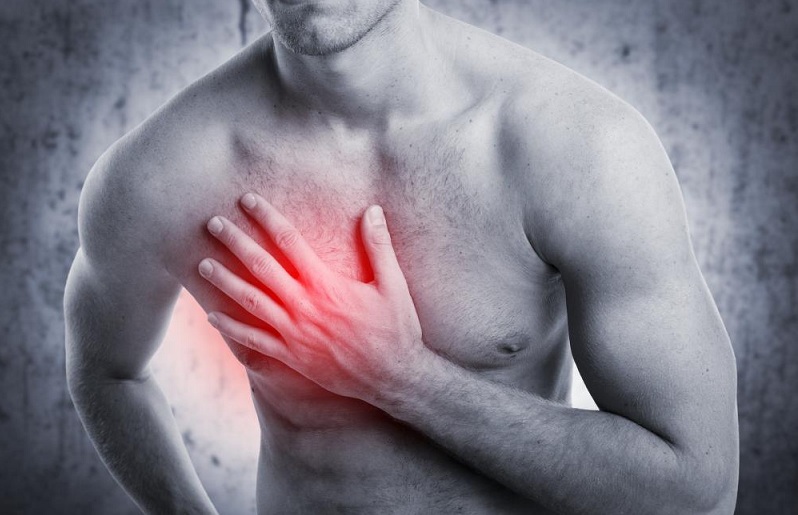 New Health Guide
New Health Guide
Many people experience sudden periods of rapid and irregular heartbeats which are termed as heart palpitations. People who experience them feel the heart beating rapidly or sometimes skipped beats. Palpitations can be very frightening and disturbing, leading people to worry about death. Many people can just ignore them, and usually majority of such palpitations are not life-threatening.
 When you feel that your heart beats is beating in an abnormal speed, you may be experiencing heart palpitations which usually happen in your chest, throat or neck.
When you feel that your heart beats is beating in an abnormal speed, you may be experiencing heart palpitations which usually happen in your chest, throat or neck.
The common symptoms that accompany heart palpitations are: anxiety, fever, indigestion, nausea, thirsty, coughing mucus and rapid heart rate.
If palpitations are accompanied by the following symptoms, immediate medical attention should be sought:
Excessive stress, adrenaline rush caused due to overexcitement, anxiety, nervousness can cause palpitations. Rich and spicy food, excess caffeine, alcohol, smoking and use of recreational drugs may also lead to palpitations.
Palpitations which occur regularly along with anxiety, stress and panic can be caused due to panic attacks. During panic attacks, a person may feel fear, apprehension, nausea, sweating and trembling. They may cause a person feeling frightened but not a dangerous one.
Side effects of some medications might be palpitations. Asthma inhalers and medications for thyroid problems can cause these side effects. Doctor should be informed immediately if this is happening and medication should be stopped only after discussing with the doctor.
Temporary palpitations can be caused due to hormonal changes happening in the body during periods, menstrual cycle and even during menopause.
Certain health conditions can cause increase in heart rate or irregular heartbeats. Some of them are:
Although the symptoms of heart palpitations vary from person to person, there are some common features. It is described as uneasiness, flip-flopping of heart beats, feeling of heart stopping, etc. and is often used to describe palpitations by people.
Evaluation for palpitations begins with a thorough medical history, involving the type of food consumed, the lifestyle followed and current medications. Physical examination involving heart and lungs, followed by lab tests, if required, will be performed. ECG and basic blood tests might be required. For people with associated symptoms, ultrasound of heart, EKG, treadmill tests, etc. might also be required.
Irregular heartbeat usually does not cause any damage to the heart. However, when palpitations occur for extended periods of time, people might be at risk of developing enlarged heart or heart failure. Atrial fibrillation can be caused in people suffering from palpitations, but some people might remain asymptomatic for many years as well. They can also cause clots, which can lead to strokes.
During pregnancy there is an increase in the blood volume, which can put the heart under stress and cause increase in heart rate or palpitations. Women might not experience them after pregnancy. Palpitations might occur during pregnancy with no problems in the heart. Women who experience palpitations, syncope prior to pregnancy might see a decrease in symptoms during pregnancy.
Foods containing caffeine are known to cause palpitations. Cappuccinos, Lattes, expresso and Sodas act as stimulants. Sometimes consumption of excess chocolates can also cause palpitations. Binge drinking or high alcohol content has also been reported to cause palpitations. Reducing intake of such foods can reduce symptoms. Cold and allergy medications containing pseudoephedrine might also be a concern for palpitations.
Watch a video to learn something more about the heart palpitations from: